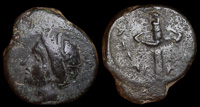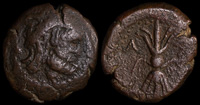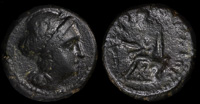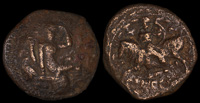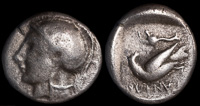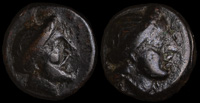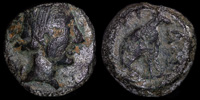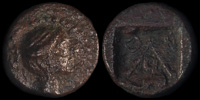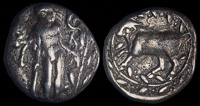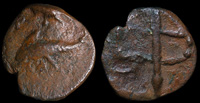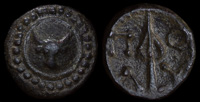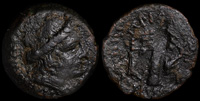Crete
Knossos is first settled.
Phaistos is first inhabited.
The first palace at Phaistos is constructed.
Construction begins on the Palace of Minos at Knossos.
The Palace of Minos at Knossos is rebuilt on a grander scale at Knossos.
The palace at Phaistos is destroyed.
Palace of Minos at Knossos is destroyed.
Knossos begins a resurgence, but the Palace of Minos is not rebuilt.
Approximate foundation of Itanos per archeological records.
Phaistos is re-inhabited.
The necropolis in Orthi Petra, which serves as a burial site for elite citizens, is constructed in Eleutherna.
400 BCE
The Gortyn Code in chiseled into a wall in Gortyna. Its fragments are the second longest Greek inscription remaining.
Demetrios Poliorketes besieges Rhodes and invents many new siege engines for the purpose (earning him the title ‘besieger’) but he fails and is forced to leave them. Knossos provides troops to support Rhodes.
Eleutherna triggers the Lyttian War by accusing Rhodes of murdering their leader Timarchos.
216 BCE
The Lyttian War is fought between an alliance led by Knossos and one led by Polyrhenion. On the side of Knossos were Rhodes, the Aetolian League, and Kydonia. On the side of Polyrhenion were Lyttos, Macedon, and the Achaian League.
Philipoemen is invited to Gortyna and takes control of its military.
The Aetolian League aids Rome in defeating Philip V in the Battle of Cynoscephalae. Philip pauses for a day at Gonnos for troops who had survived the battle. Several hundred soldiers from Gortyna participate on the Roman side.
Kydonia and Polyrhenion capture Phalasarna.
Priansos and other cities in Crete sign an alliance with Eumenes II of Pergamon.
Polyrhenion and Kydonia capture Apollonia.
Praisos is burned down by Hieropytna.
The Roman general Quintus Caecilius Metellus conquers Crete, incorporating it into the Roman Republic. Eleutherna, along with Gortyna, Knossos, and Kydonia, come under Roman rule
Romans sent to counter piracy destroy Phalasarna.
Knossos becomes a Roman colony named Colonia Iulia Nobilis.
July 21
An earthquake destroys Aptera, Gortyna, Eleutherna, and Knossos on Crete. Alexandria is devastated by a tsunami, and Kyrene is also affected by the same tsunami. Kydonia is also damaged. In the Peloponnese, Messene is affected.
